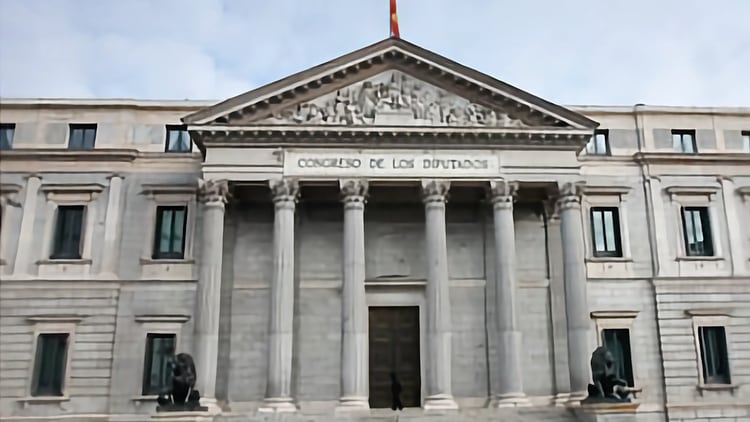Eduardo González
King Felipe VI will travel to Guatemala City to attend the inauguration of the elected president of the Republic of Guatemala, César Bernardo Arévalo de León, on January 14. The Monarch will be accompanied on this occasion by a member of the Government, specifically the Minister of Foreign Affairs, José Manuel Albares, unlike what happened at the investiture of the president of Argentina, Javier Milei.
César Bernardo Arévalo de León is a 65-year-old sociologist, diplomat and politician who won the second round of the presidential elections, held on August 20, with 60.9% of the votes. Arévalo ran in the elections with the support of the Semilla Movement, a social democratic formation of which he was general secretary. He is the son of former Guatemalan president Juan José Arévalo Bermejo (1945-1951) and will succeed Alejandro Giammattei in the Guatemalan Presidency.
The King represents Spain at the inaugurations of Ibero-American presidents, a task that Don Felipe has been assuming since 1996 when he was still Prince of Asturias. This is the fourteenth participation of Felipe VI in the inauguration of an Ibero-American leader since he became King.
Specifically, the Monarch was at the investiture of the Mexican Andrés Manuel López Obrador in 2018; in 2019, in that of the Panamanian Laurentino Cortizo; in 2020, in those of the Uruguayan Luis Lacalle Pou and the Bolivian, Luis Arce; in 2021, in those of the Ecuadorian Guillermo Lasso Mendoza and the Peruvian Pedro Castillo; in 2022, in those of the Honduran Xiomara Castro, the Chilean Gabriel Boric, the Costa Rican Rodrigo Chaves and the Colombian Gustavo Petro; and in 2023, in those of the Brazilian Luiz Inácio Lula da Silva, the Paraguayan Santiago Peña Palacios and the Argentine Javier Milei. On the other hand, he could not be present at the recent inauguration of the Ecuadorian president, Daniel Noboa, due to agenda reasons related to the formation of the new Government of Pedro Sánchez and the inauguration of the new ministers.
Unlike Milei’s inauguration, the King will travel on this occasion accompanied by a member of the Government, specifically José Manuel Albares. Normally, the Monarch has been accompanied by other ministers in this type of event, especially in the recent inaugurations of several presidents who are on the left, such as Boric, Arce, Petro or Lula da Silva, at attended by the then vice president Pablo Iglesias, the current vice president Yolanda Díaz or the former minister Irene Montero.
Almost a dozen Ibero-American heads of state have already confirmed their attendance at Arévalo’s inauguration, in addition to Felipe VI: the presidents of Mexico, Andrés Manuel López Obrador; Chile, Gabriel Boric; Costa Rica, Rodrigo Chaves; Honduras, Xiomara Castro; Colombia, Gustavo Petro; Paraguay, Santiago Peña; Ecuador, Daniel Noboa; and Panama, Laurentino Cortizo.
Also attending will be the Secretary General of the Organization of American States (OAS), Luis Almagro, who closely monitored the transition process after the repeated attempts by the Guatemalan Prosecutor’s Office to reverse the electoral victory of Arévalo de León, for whom it requested the withdrawal of impunity after accusing the Semilla Movement of an alleged crime of money laundering. Bernardo Arévalo himself had warned in September that the attorney general, Consuelo Porras, had the intention of committing a “coup d’état” against him to prevent his coming to power. The new president based part of his electoral campaign on the fight against corruption. On December 14, just one month before the inauguration ceremony, the Constitutional Court of Guatemala issued a definitive appeal that urged Congress to carry out the inauguration of the new president.
Last December, the Spanish Government (and the EU, proposed by Spain) rejected the actions of the Public Ministry of Guatemala against Arévalo, considering that they “attack democracy” and represent “a serious violation of the free will of the Guatemalan people.” expressed at the polls,” and demanded that “all Guatemalan institutions respect the results of the polls and guarantee the peaceful transfer of power.”







